When I first started camping with my baby, the thing that worried me most wasn’t the weather. Or even whether she’d end up eating lots of dirt (hey, it boosts immunity, right! 😉 What did worry me was how I’d keep all those friggin’ mosquitoes off of her. Thus began my search for baby-safe mosquito repellents.
Jump to:
The Bad News: No Baby-Safe Mosquito Repellent is 100% Effective
This shouldn’t come as such a big surprise. Even mosquito repellents made for adults don’t keep away insects completely (the exception being those with insane amounts of DEET in them). Obviously all those organic, all-nature mosquito repellents for babies aren’t going to do as good of a job.
Why do I say this? I’m not trying to be discouraging. Rather, it’s so you’ll take a multi-faceted approach to bug control.
Instead of relying on just one mosquito repellent for your baby, you’ll probably have to use a combination of products. Like a mesh net over the car seat/bassinet while the baby sleeps + bug spray + essential oils.
Oh, and some good news: Young babies (at least mine) seem to handle mosquito bites quite well. My baby has gotten bit numerous times by mosquitoes on our camping trips, but the bites never seem to make her itchy or cranky. It’s only once they get a bit older that the itchiness drives them crazy. My 8-year old, for example, whines like crazy about bites. 😮
Try Avoiding Mosquitoes Completely
Normally mosquitoes aren’t such a big deal for me when I go camping. Why? Because my older daughter and I always went camping at higher elevations. That high up, we won’t see a single mosquito.
So, if you are planning a family camping trip with your baby, it might be worth it to go a bit further away. Avoid camping on low-lands near bodies of water like lakes or creeks. Yes, it might be a pain in the ass to get to the camping spot – but you’ll enjoy nature more when mosquitoes aren’t biting you all over!
Other tips:
- Plan to be “indoors” during dusk when mosquitoes are at their worst.
- Remember the camping rule of ALWAYS LEAVE THE TENT DOOR CLOSED. There is nothing worse than sleeping in a tent while one mosquito buzzes around your head all night.
Types of Mosquito Repellents for Babies
There are 5 main options for baby-friendly insect repellents. None of these options is perfect. So, if you are in an area with tons of sketers, you’ll need to use a combination of these methods.
- Physical barriers
- Chemical (DEET and picaradin) insect sprays
- Natural and organic insect sprays/creams (applied to the skin)
- Essential oils (used around the baby)
- Ultrasound repellents
Mosquito repellents which you burn, such as candles, are not recommended around babies. Likewise, most mosquito bracelets aren’t safe or simply don’t work.
Option 1: Physical Barriers
As any mother in the jungles of South America will tell you, this is the best option. You make a canopy out of mesh netting and put it wherever your baby will be. Not only is it effective but, as your child gets older, it gives them the feeling of being in a princess bed. 🙂
There are now plenty of options for mosquito nets for bassinets, cribs, and strollers.
If you are camping or going to be spending a lot of time outdoors, you may also want to get a mosquito-proof canopy to hang out in at dusk (when mosquitoes are at their worst).
Obviously you can’t stay under a mosquito net all day and night though. So, for the rest of the time, you’ll need to use one of the other baby-safe mosquito options.
Recommended Products:
MiniGz Pop-Up Baby Tent
This is good for babies who aren’t crawling yet. Put them inside when napping or when they are calm to keep them out of reach of mosquitoes.
MekkaPro Large Mosquito Net
Though it requires more time to put up, this mosquito net is great because multiple people can fit in it. That means you can be under it while breastfeeding or playing with the baby.
![]()
Stroller/Car Seat/Play Pen Mosquito Net
Here’s a versatile mosquito net that can go over your baby’s car seat, stroller or play pen. It has elastic edges so will fit pretty much anywhere.
Option 2: DEET and Picaradin Insect Sprays and Creams (applied to skin)
There is a lot of controversy as to whether you should use insect spray on babies. Most effective mosquito sprays/creams contain N-diethyl-meta-toluamide or diethyltoluamide, aka DEET.
According to the American Academy of Pediatrics, DEET is safe for babies as young as 2 months old – though a lot of pediatrician organizations (such as this one) say not to use it on babies under 6 months old.
Likewise, there are also insect sprays which contain picaradin, a DEET alternative available under the brand name of Cutter Advanced. It is newer in the USA and is nearly as effective as DEET. Both DEET and picaradin work by confusing mosquitoes. As they come to bite you, they get “blinded” and aren’t sure what to do.
The AAP says that picaradin is also safe for babies as young as 2 months. But the AAP has also been wrong or revising its guidelines about a lot of things over the years – such as their updated guidelines on screen time or chemicals in food — which leads many parents to be skeptical of whether DEET and picaradin are actually “safe” like the AAP claims.
Risks of DEET
According to Scientific American, various studies have found that certain people may be sensitive to DEET. In these people, DEET may cause rashes, skin irritation, headaches, or dizziness. Prolonged exposure could cause behavior changes and even cell death.
The CDC also mentions these potential symptoms, but notes that symptoms only occur from ingestion and/or exposure to large amounts of DEET. And, an article at Popular Science talks about how overblown and downright incorrect the claims of DEET’s health risks are.
Guidelines for Using DEET Mosquito Repellents on Babies
There is no doubt that DEET and picaradin mosquito repellents are the most effective option. Plus, they also protect against other creepy-crawlies like ticks.
Since there are so many diseases which can be transferred by tick bites, many will argue that avoiding tick bites makes any potential risks of DEET well worth it.
Obviously, it is up to you to decide whether you want to use a DEET or picaradin bug repellent on your baby. But, if you do, follow these guidelines:
- Spray the repellent onto your hands first. Then rub it onto the baby’s skin. This way the spray won’t get into the air where your baby will breath it in.
- Never apply DEET repellents on your baby’s hands or face. Babies always put their hands in their mouths and rub their faces frequently, so some of the DEET could end up being ingested.
- Wash your hands after applying DEET.
- Don’t apply DEET over wounds or irritated skin.
- Don’t use DEET sunscreen on babies. Sunscreen needs to be reapplied frequently and DEET should not be reapplied on young babies.
Note that DEET bug spray comes as a percentage. Higher percentages of DEET aren’t more effective; they just last longer.
- Babies 6 months to 2 years old: Up to 10% DEET once per day. This will protect aginst insects for up to 4 hours.
- Kids older than 2 can use 10% DEET up to 3 times per day.
Recommended Product:
- Active ingredient:15% deet
- Age: From 2 months and up
- Why? Wipes are easier to apply on wriggling babies than creams. It contains DEET, so it actually wors. There is nothing to spray, so no risk of DEET getting into the air.
- Buy here
Option 3: Natural and Organic Insect Sprays/Creams for Babies
There are now plenty of natural insect repellents available. Sorry, but none of these are going to be as effective as one containing DEET. However, some still do a pretty damn good job of keeping mosquitoes off your baby.
The issue is that there are safety concerns even with some of the natural options. “Natural” is a very generic term and doesn’t always mean safe. For example, coffee is “natural”…but you won’t see me giving coffee to my baby in a sippy cup. :p
So be wary of all those brands of insect sprays touting themselves as “natural.” This doesn’t always mean safe. And some ingredients which are safe for adults might be problematic for babies.
Citronella, for example, is a very common natural mosquito repellent, but some claim that it might irritate a baby’s skin or airways.
If you want to find a natural/organic bug spray for babies which actually works, look for one registered with the EPA. This will ensure it is effective. You’ll still have to reapply it a zillion times and it won’t be as good as anything with DEET, but at least it will do something.
Recommended Products:
Babyganics Mosquito Repellent
This natural mosquito repellent is made from oil. The idea is that the mosquitoes can’t bite the baby because the oil suffocates them. It is the most popular baby bug spray.
- Ingredients: Soybean oil, rosemary oil, citronella, geranium, cedar, peppermint, lemon grass oil
- Age: 6 months and up
- Why? It is non-greasy and is one of the more-effective natural mosquito repellents
- Buy Here
Option 4: Essential Oils
Essential oils are usually made by a process called steam distillation. The process allows for the compounds in the plant to be extracted so they can be suspended in an oil carrier. You get the active compounds of the plant in a very concentrated form.
Top Mosquito-Repelling Essential Oils for Babies
- Citronella
- Peppermint
- Eucalyptus
- Vanilla
- Lavender
*Lemon eucalyptus oil (aka Eucalyptus Citriodora) shouldn’t be used on children under 3 years old. The synthetic version of this is called PMD or p-Menthane-3.8-doil These are NOT the same as regular eucalyptus which is also called Eucalyptus Globulus.
How to Use Essential Oils
As a general rule, essential oils should not be applied directly to babies’ skin (though vanilla and lavender are said to be safe). Because essential oils are so concentrated, they could cause irritation to the skin.
Likewise, there is some concern that citronella oil can irritate babies’ airways. Many websites warn against using citronella on babies, particularly if the baby has breathing problems like asthma.
However, you’ll also note that almost all of the natural/organic insect repellents for babies contain essential oils like citronella and these can safely be applied to the skin. Being a parent is confusing as hell because everything is simultaneously “safe” and “potentially dangerous”! My non-expert opinion is that some baby probably had an allergic reaction, and now all doctors have to include a warning to cover their asses.
To use essential oils as a baby mosquito repellent:
- Put the essential oil in a saucer near where the baby is, but safely out of the baby’s reach.
- Or put the essential oils on a cotton ball near the baby (out of reach).
- Dillute the essential oil in a water bottle and spray a small amount onto the baby’s linens.
- Lavender or vanilla oils can be diluted in a baby cream or Vaseline, and then dabbed onto the baby’s skin (avoid eyes, mouth, and hands).
Product Recommendation:Lavender Essential Oil
Option 5: Ultrasound Mosquito Repellents
Do not use electric mosquito repellents/plug-ins that use chemicals. These likely contain unsafe ingredients which your baby will then breathe in.
Then there are those ultrasound mosquito repellents. Depending on the brand, manufacturers claim they work in different ways. Some claim that the ultrasound resembles a bat’s cry, thus scaring away mosquitoes. Other brands simply imply that the sound – which is audible to insects but not to us humans – is annoying to mosquitoes.
The problem is that these claims are complete nonsense. Some brands have even been reprimanded by the FTC for false advertising.
Likewise, any apps on your phone which claim to emit ultrasound frequencies to chase away mosquitoes are full of crap.
Recommended products? None! These simply don’t work.
Resources:
https://www.auracacia.com/community/article/3-types-of-eucalyptus-essential-oil
https://www.momjunction.com/articles/is-it-safe-to-use-mosquito-repellents-for-babies_00105822/#gref
https://www.todaysparent.com/family/family-health/ask-dr-dina-are-insect-repellents-with-deet-safe-for-kids/
Image credit:”There is a baby in that tent (https://www.flickr.com/photos/eccentriccx/9208694965/)” (CC BY 2.0) by eccentriccx


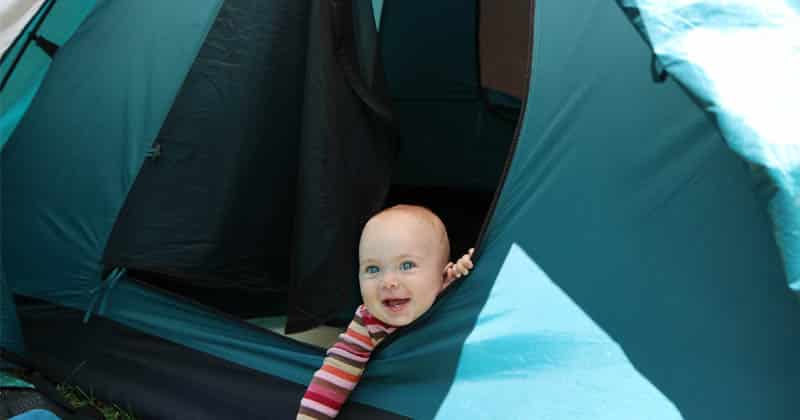
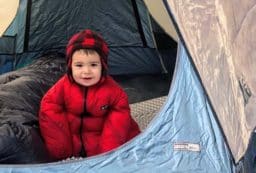
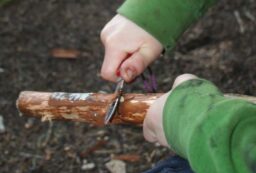
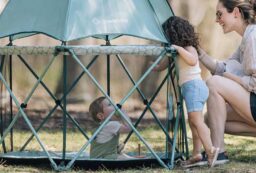
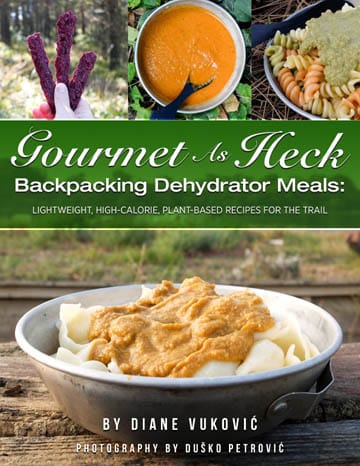


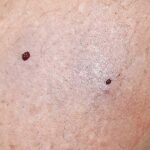
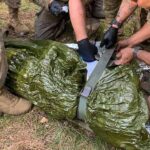
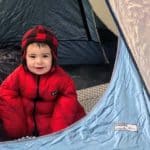
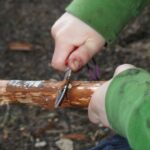
Post your comments